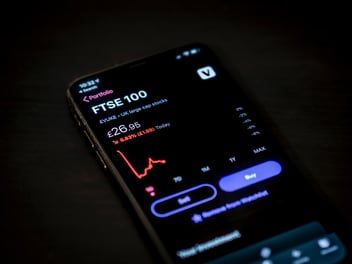The recent collapse of Silicon Valley Bridge Bank (SVBB) has sent shockwaves through the tech community, and unfortunately, it has also led to a rise in phishing scams giving scammers a new opportunity to exploit individuals who may already be vulnerable and seeking answers about their financial situation.
Phishing scams are a type of online fraud where scammers send fake emails or messages that appear to be from a legitimate company or organization. These messages often contain links or attachments that, when clicked, can install malware on your device or take you to a fake login page designed to steal your login credentials. In the case of the SVB Bank collapse, scammers are sending messages that claim to be from the bank, asking victims to provide their account information to "verify" their account or to transfer their funds to a "safe" account. These emails often contain links to fake websites that mimic the bank's official site, where users are prompted to enter their login credentials or personal information.
Here are some tips to keep in mind and help you avoid falling victim to phishing scams related to the SVB Bank collapse:
- Be wary of unsolicited emails or phone calls: If you receive an email or phone call from someone claiming to be from SVBB or another financial institution, do not provide any personal information without first verifying their identity.
- Double-check URLs: Before entering any sensitive information on a website, make sure that the URL is correct and that the site is secure. Look for the padlock icon in your browser's address bar, and make sure the URL starts with "https" instead of "http."
- Use two-factor authentication: Two-factor authentication adds an extra layer of security to your accounts by requiring a code in addition to your password. This can help prevent unauthorized access even if your password is compromised.
- Check for spelling and grammar errors: Phishing messages often contain spelling and grammar errors, which can be a red flag that the message is not legitimate.
- Be wary of urgent requests: Phishing messages often use urgent language to create a sense of urgency and pressure you into taking action. Be cautious of any message that urges you to act immediately.
- Monitor your accounts: Regularly check your bank and credit card statements for any unauthorized transactions and report any suspicious activity to your financial institution immediately.
In conclusion, the collapse of Silicon Valley Bridge Bank has unfortunately led to a rise in phishing scams. Cybercriminals are using this opportunity to prey on unsuspecting victims and steal their sensitive information. By staying informed and following the tips outlined above, you can protect yourself from falling victim to these scams and keep your personal and financial information safe.
Photo by Mariia Shalabaieva on Unsplash




